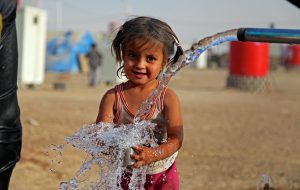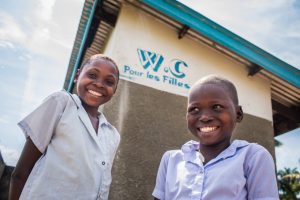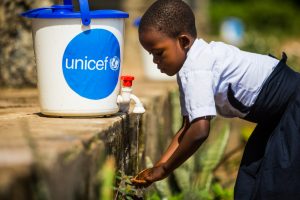Water, Sanitation and Hygiene (WASH)
For children to grow up healthy and develop to their full potential they need access to safe clean water, sanitation and good hygiene practices. Without these basic needs, the lives of millions of children are at risk. For children under five, water and sanitation related diseases are one of the leading causes of death.
Every day, over 800 children die from preventable diseases caused by poor water, and a lack of sanitation and hygiene. That’s why UNICEF’s water, sanitation and hygiene (WASH) team works in over 100 countries worldwide.

Water
UNICEF’s works to ensure children have access to safe clean water. This means providing new water sources, maintaining and testing quality of existing water sources and making sure children don’t have to make long journeys to find clean water.

Sanitation
UNICEF works to give children and their communities access to basic toilets, to encourage their use and to separate human waste from contact with people. One important area of work for sanitation is to end the practice of open defecation.

Hygiene
UNICEF’s work in hygiene promotes and nurtures good hygiene practices, especially handwashing with soap. Although it sounds simple, this act is essential to prevent the spread of disease and to keep children healthy.
Access to Clean Safe Drinking Water
Dirty water is the leading killer of
children under five years of age
Girls Miss Out on Education
In poor and vulnerable communities, when there aren’t proper facilities near their homes, girls and women have to make long and dangerous journeys to collect water. In fact, 80% of households rely on girls and woman for water collection, this means that a lot of girls living in places under water stress are not getting a chance to learn because they spend hours each day collecting water.
Lack of sanitation too is taking girls out of school. When girls don’t have access to separate bathrooms at school, attendance drops and they miss out on the chance to learn.

